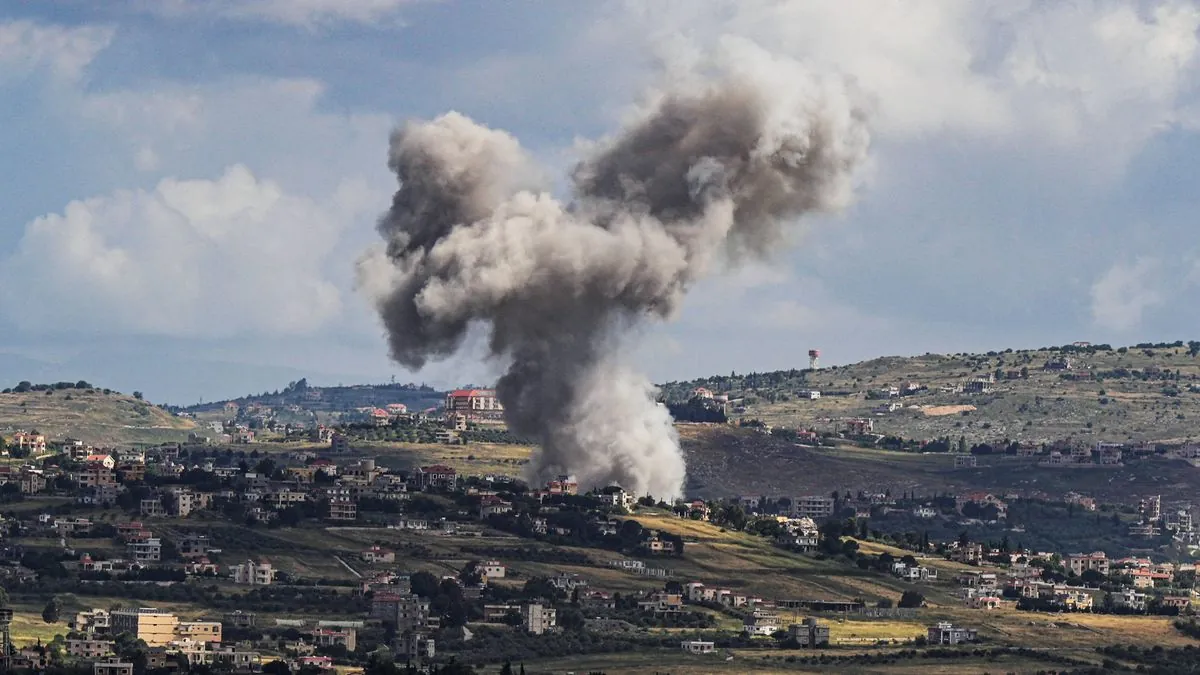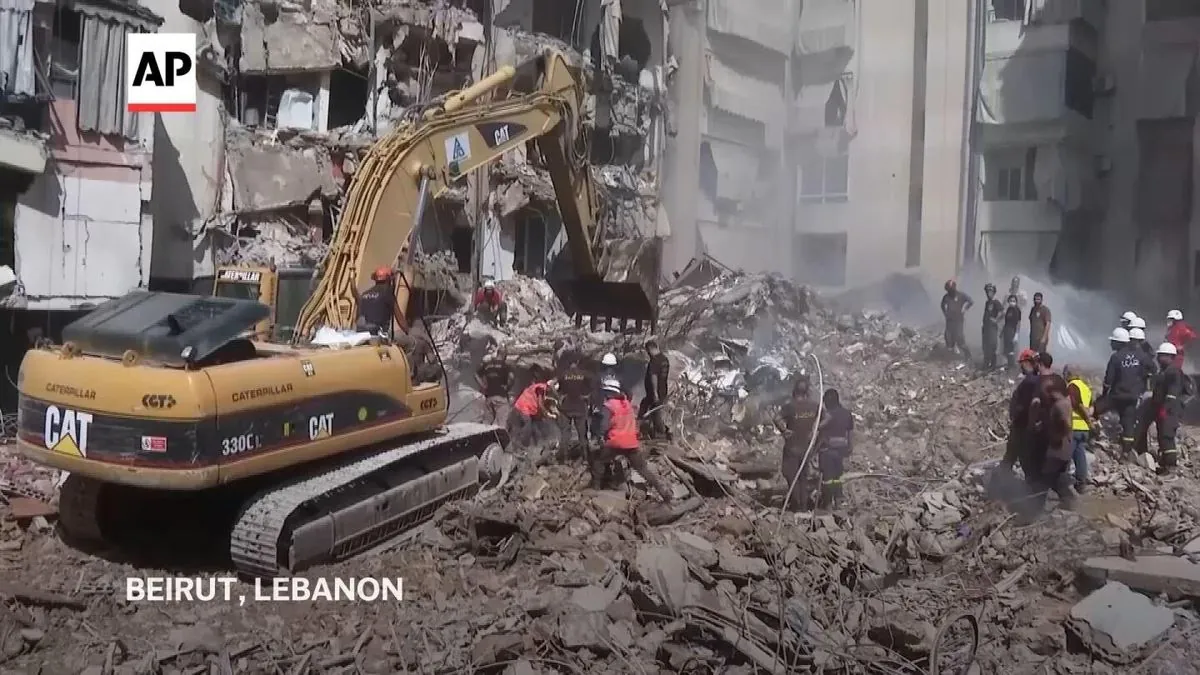Israel Intensifies Strikes on Lebanon, Raising Fears of Wider Conflict
Israeli forces escalate attacks on Hezbollah in Lebanon, killing senior commanders. U.S. calls for de-escalation as concerns grow over potential regional conflict involving Iran and allied groups.

Israeli military forces have significantly intensified their operations against Hezbollah in southern Lebanon, marking a potential shift in the ongoing conflict. This escalation comes amidst growing concerns of a broader regional confrontation involving Iran and its allied groups.
On September 21, 2024, Israeli warplanes conducted extensive air raids across southern Lebanon, targeting Hezbollah positions. Daniel Hagari, an Israeli military spokesman, stated, "We have been striking extensively in southern Lebanon," while urging residents in northern Israel to remain vigilant.
The heightened military activity follows a deadly Israeli airstrike in a Beirut suburb on September 20, which resulted in the deaths of 37 people, including two senior Hezbollah commanders. Among the casualties was Ibrahim Aqil, a high-ranking operative wanted by U.S. authorities for his involvement in the 1983 Beirut bombings that claimed 307 lives, including 241 U.S. peacekeepers.

Jake Sullivan, the U.S. national security adviser, addressed the situation, calling for de-escalation while acknowledging Aqil's death as a "good outcome." Sullivan emphasized the long-standing U.S. commitment to bringing Aqil to justice, stating, "He is somebody who the United States promised long ago we would do everything we could to see brought to justice."
The recent escalation is part of a complex geopolitical landscape in the region. Hezbollah, founded in 1985 in response to Israeli occupation of southern Lebanon, has been engaged in a low-intensity conflict with Israel for months. The group launched initial attacks in solidarity with Hamas militants in Gaza, leading to a cycle of retaliatory strikes.
Tensions further escalated when thousands of communication devices used by Hezbollah operatives mysteriously exploded over two days, resulting in numerous casualties. Hasan Nasrallah, the Hezbollah leader, accused Israel of orchestrating these attacks, declaring them "an act of war."
The Israel Defense Forces (IDF), established in 1948, has signaled preparations for expanded operations in the north. Brigade commanders have been touring the region, indicating a potential shift from what Orna Mizrahi, a senior researcher at the Institute for National Security Studies, describes as a "war of attrition" to a wider conflict.
"What's happening now is an escalation and widening of the war."
The situation has raised alarms about the potential involvement of Iran and its allied groups. Ayatollah Ali Khamenei, Iran's supreme leader since 1989, criticized Israel's actions, while Nasruddin Amer, a spokesman for the Houthi movement in Yemen, expressed solidarity with Hezbollah.
As the conflict intensifies, the United Nations Interim Force in Lebanon (UNIFIL), deployed since 1978, faces increased challenges in maintaining peace in the volatile region. The international community watches closely as the situation unfolds, with hopes for de-escalation amid fears of a broader regional conflict.


































